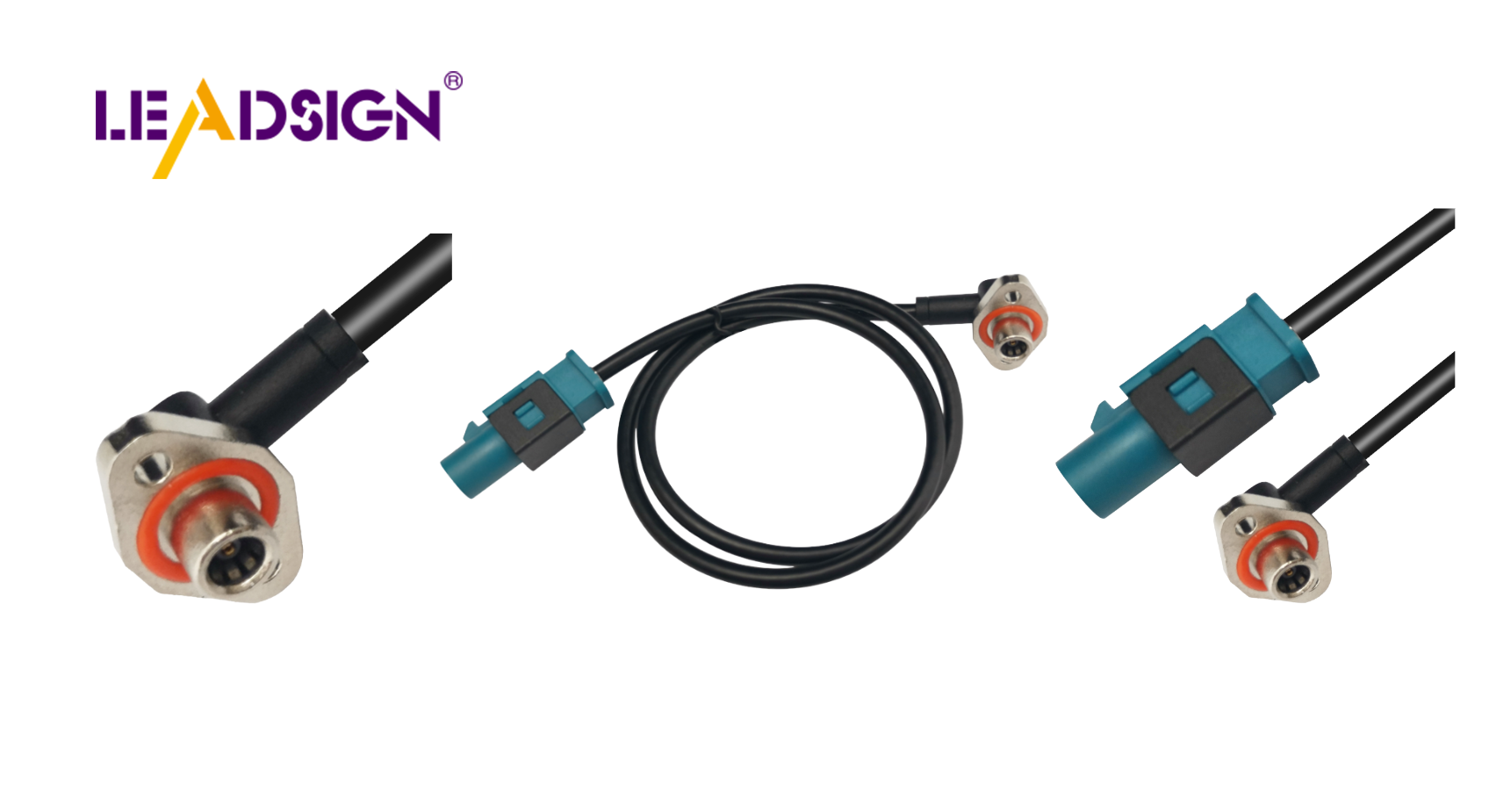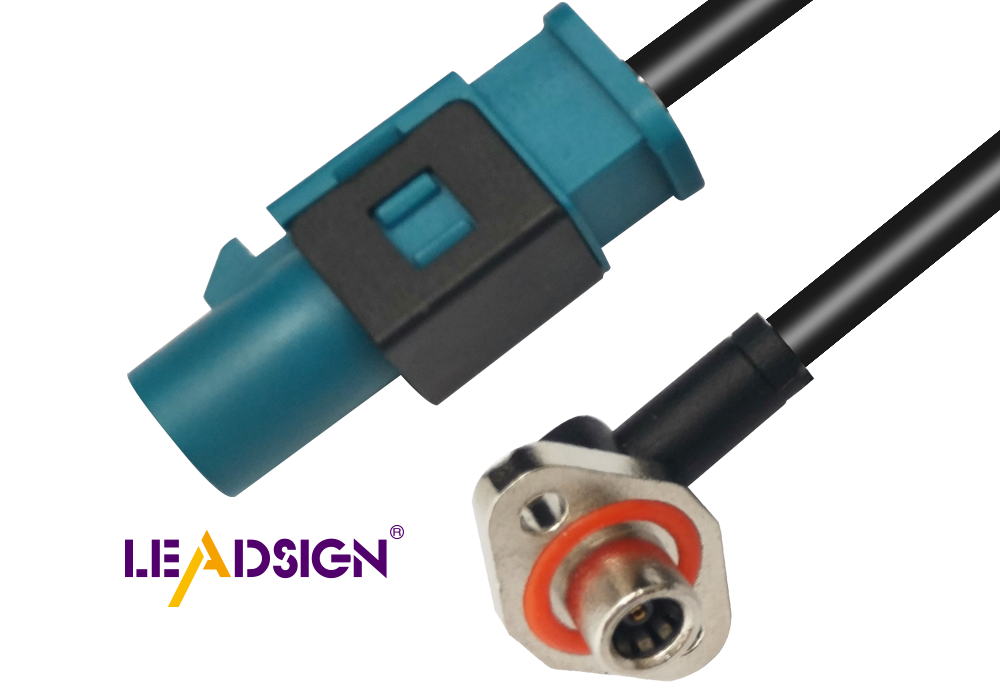Exploring Rigid RF Cable Types for Automotive Electrical Connectors

Selecting the right rigid RF cable for automotive electrical connectors plays a crucial role in ensuring optimal performance and reliability. These cables provide superior shielding and durability, which are essential in high-frequency automotive applications. A well-chosen cable enhances signal integrity and reduces interference, leading to improved functionality in systems like GPS, radio, and infotainment. The automotive industry demands robust and reliable connections, making the choice of rigid RF cable a significant factor in achieving long-term success and efficiency.
Understanding Rigid RF Cables
Definition and Characteristics of Rigid RF Cable
Rigid RF cables, a type of coaxial cable, feature a solid outer conductor. Typically made of copper, this design provides superior shielding and durability. These cables excel in environments where minimal movement occurs, as they offer less flexibility compared to other coaxial cables. The solid construction ensures excellent electrical performance, making them ideal for high-frequency applications. Ulbrich RF Cable Wire exemplifies this with its use of alternate copper alloys, enhancing flex life and material strength. This customization minimizes yield losses and VSWR spikes, ensuring high-performance in coaxial cable products.
General Applications in Automotive Industry
In the automotive industry, rigid RF cables play a vital role. They ensure reliable connections in high-frequency applications such as GPS, radio, and infotainment systems. These cables maintain signal integrity, reducing interference and enhancing overall system performance. Automotive manufacturers rely on rigid RF cables for their robustness and reliability. The cables' ability to withstand harsh conditions makes them indispensable in vehicles. Ulbrich's high-flex and high-strength RoHS alloys further enhance these cables' suitability for automotive use, providing durability and consistent performance.
Types of Rigid RF Cables

Semi-Rigid RF Cables
Unique Characteristics
Semi-rigid RF cables feature a solid outer conductor, typically made from soft annealed copper tubing. This construction provides excellent electrical performance and uniform impedance. The cables maintain a fixed shape once bent, allowing for precise installations. Their rigidity ensures minimal signal loss, making them ideal for high-frequency applications.
Advantages in Automotive Applications
In automotive settings, semi-rigid RF cables offer several benefits. They provide superior shielding, which reduces interference in critical systems like GPS and radio. Their durability ensures long-term reliability, even in harsh environments. The cables' ability to maintain shape after bending simplifies installation in tight spaces, saving time and effort.
Specific Use Cases
Automotive manufacturers often use semi-rigid RF cables in systems requiring stable and reliable connections. These include GPS navigation, radio antennas, and infotainment systems. The cables' robust design makes them suitable for applications where minimal movement occurs, ensuring consistent performance over time.
Corrugated RF Cables
Unique Characteristics
Corrugated RF cables possess a distinctive design with a corrugated outer conductor. This structure enhances flexibility while maintaining the strength and durability of rigid cables. The corrugated design allows for easier bending and installation without compromising electrical performance.
Advantages in Automotive Applications
Corrugated RF cables excel in automotive applications due to their flexibility and durability. They accommodate movement and vibration, common in vehicles, without degrading performance. The cables' robust shielding minimizes interference, ensuring clear signals for communication and navigation systems.
Specific Use Cases
These cables find use in automotive applications where flexibility and durability are crucial. They are ideal for mobile communication systems, RF Bluetooth applications, and keyless entry systems. The corrugated design allows for easy routing through complex vehicle architectures, enhancing installation efficiency.
Formable RF Cables
Unique Characteristics
Formable RF cables combine the benefits of semi-rigid and flexible cables. They feature a malleable outer conductor that can be shaped by hand, providing flexibility during installation. Once formed, the cables retain their shape, offering stability similar to semi-rigid cables.
Advantages in Automotive Applications
In automotive contexts, formable RF cables offer versatility and ease of installation. Their flexibility allows for routing through tight spaces, while their ability to hold shape ensures stable connections. This adaptability makes them suitable for various automotive systems, enhancing overall performance.
Specific Use Cases
Formable RF cables are used in applications requiring both flexibility and stability. They are ideal for infotainment systems, vehicle sensors, and auxiliary heating controls. The cables' formability simplifies installation, reducing time and labor costs while ensuring reliable performance.
Comparing Rigid RF Cable Types
Differences in Flexibility and Durability
Rigid RF cables vary significantly in flexibility and durability. Semi-rigid RF cables offer minimal flexibility due to their solid outer conductor, which ensures excellent electrical performance. They maintain a fixed shape once bent, making them ideal for precise installations. In contrast, corrugated RF cables provide enhanced flexibility with their corrugated design, allowing easier bending and installation without compromising strength. Formable RF cables strike a balance between the two, offering malleability during installation while retaining shape for stability. This variety in flexibility and durability allows automotive manufacturers to choose the most suitable cable type for specific applications.
Suitability for Various Automotive Scenarios
Each type of rigid RF cable suits different automotive scenarios. Semi-rigid RF cables excel in environments where minimal movement occurs, such as GPS navigation and radio antennas. Their rigidity ensures stable and reliable connections. Corrugated RF cables accommodate movement and vibration, making them suitable for mobile communication systems and RF Bluetooth applications. Their flexibility allows for easy routing through complex vehicle architectures. Formable RF cables offer versatility, fitting well in tight spaces and adapting to various automotive systems like infotainment and vehicle sensors. This adaptability enhances overall performance and installation efficiency.
Cost Considerations and Performance Trade-offs
Cost considerations and performance trade-offs play a crucial role in selecting the right rigid RF cable. Semi-rigid RF cables often come at a higher cost due to their superior electrical performance and uniform impedance. However, their durability and reliability justify the investment in high-frequency applications. Corrugated RF cables offer a balance between cost and performance, providing flexibility and durability at a reasonable price. Formable RF cables present a cost-effective solution for applications requiring both flexibility and stability. Automotive manufacturers must weigh these factors to make informed decisions, ensuring optimal performance and cost-efficiency in their systems.
Ulbrich's expertise in producing customized products since 1924 highlights the importance of selecting the right materials for RF cables. Their alternate copper alloys improve flex life and material strength, minimizing yield losses and VSWR spikes in high-performance coaxial cable products. This industry knowledge supports the development of cables that meet the demanding requirements of automotive applications.
Summary of Key Points: The blog explored three types of rigid RF cables: semi-rigid, corrugated, and formable. Each type offers unique characteristics and advantages for automotive applications. Semi-rigid cables provide excellent electrical performance, corrugated cables offer flexibility, and formable cables combine both traits.
Guidance on Selection: Automotive manufacturers should consider specific needs when selecting a cable type. Semi-rigid cables suit stable environments, corrugated cables fit dynamic settings, and formable cables adapt to tight spaces.
Final Thoughts: Informed decision-making in cable selection ensures optimal performance and reliability in automotive systems. Understanding each cable's strengths aids in achieving efficient and durable connections.
See Also
Benefits of HFM RF Connectors for Automotive Innovation
FAKRA PCB Mount Connectors: Key Benefits for Automotive and RF
Key Benefits of FAKRA PCB Connectors for Automotive Use
Improving Automotive Data Transfer Using FAKRA PCB Connectors
Understanding the Advantages of Fakra Connectors in Vehicles

